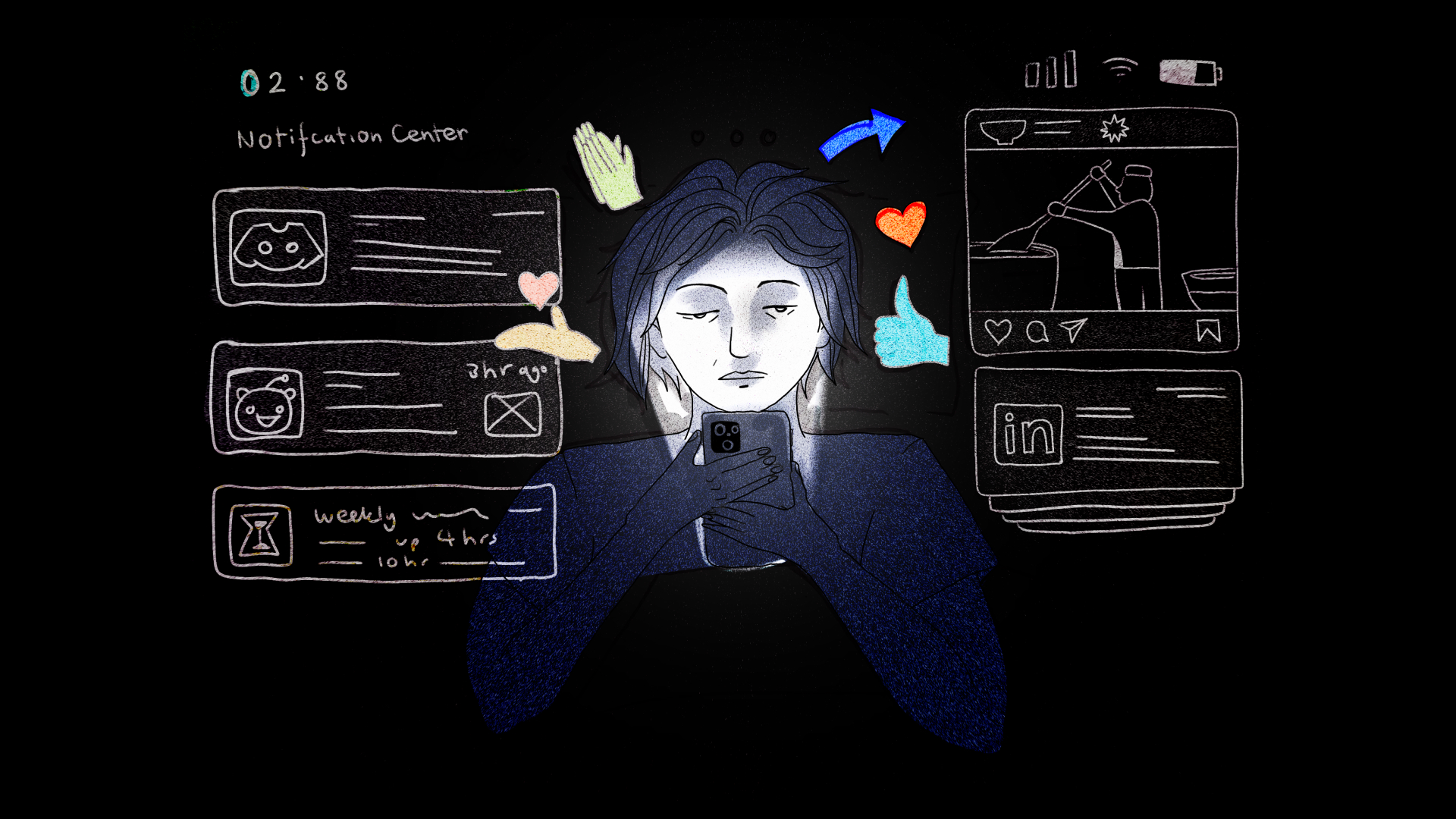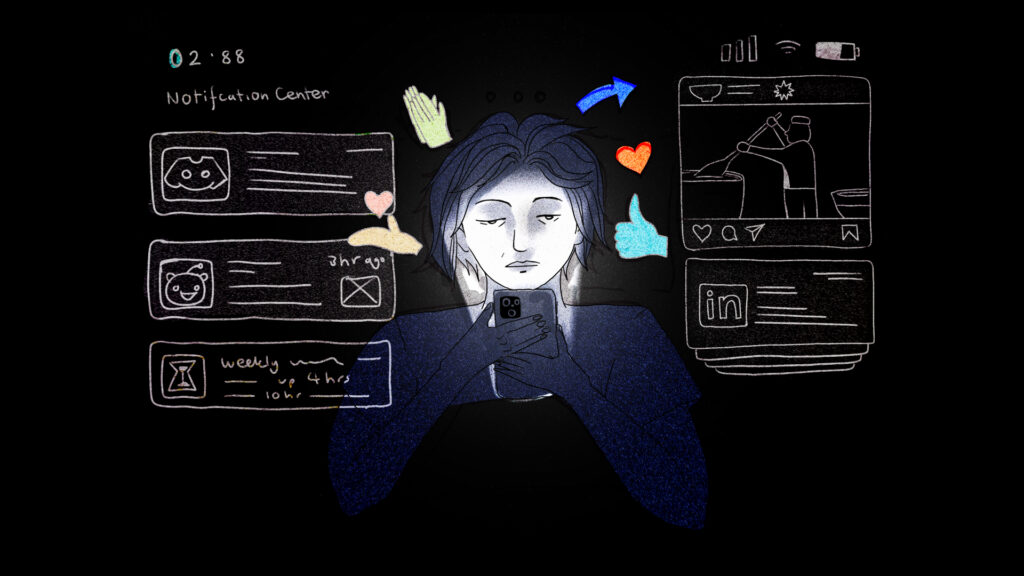 Illustration: Angela Shen / The Peak
Illustration: Angela Shen / The Peak
Authors: Jin Song (Peak Associate) and Michelle Young (Copy Editor)
Social media usage has skyrocketed in recent years. What once seemed like a novelty is now the norm, and it is increasingly rare to find someone who doesn't use social media at all. Concerns have been growing for years about the impact of social media on aspects such as mental health, child development, and sociability. Some say that social media is completely harmful, while others argue that it depends on how you use it. Others say that these claims are exaggerated and that it can foster community. The truth is usually somewhere in between, so why are more and more people choosing to distance themselves from their phones?
Jin: The evidence shows that social media can be both harmful and beneficial. To me, the fact that there is so much controversy on this subject nicely proves this conclusion. Social media affects different people in very different ways. The general consensus seems to be that social media has a negative impact on mental health, but we can now use social media to do many things that we couldn't do before, such as instantly sharing information with countless people.
Michelle: A lot of information is now easily accessible. Misinformation is still a big problem, but the potential to learn and connect with others online is huge. I've always been a homebody, but the internet has really helped me connect with people I would never have met otherwise and has led to some lasting friendships. I was happy with how I used social media my whole life, but I found myself checking email more often for fear of missing something important, updating X (Twitter) or Pinterest when I was bored, and spending more time online than I intended. Recently, I took a leap and put my iPhone away for most of the day, instead using a used flip phone connected only by Wi-Fi to keep myself away from distractions. I spend less time scrolling and am more intentional about the time I spend on media and the internet.
Jin: I've done something similar. I usually carry a smartwatch instead of a mobile phone (yes, Mr. Jobs, it's also an iPhone). Indeed, there is ample evidence that our brains are not built to process the waterfall of information that is the Internet. From personal experience, after a long period of web surfing, I feel more tired and overwhelmed than after, say, reading a book.
The internet contains a lot of negative information as well as positive or neutral information. To quote a New York Times article, “Our online news feeds aggregate all the pain and cruelty of the world, dragging our brains into a kind of learned helplessness.”
Michelle: There is a lot of negativity on the internet. However, the digitization of online materials by archives and libraries is an invaluable resource. This is not necessarily a social media specific aspect, but it is an example of the agency we have in how we use the internet. It is easier said than done, but consciously choosing what we consume on social media dramatically changes our experience. For example, I use X for news, but I curate other social media so that news doesn’t necessarily show up in YouTube or Pinterest’s algorithms. Different media make us consume information differently, but we also see negativity in movies and books. However, typically, if we don’t want to consume that content, we don’t watch or read that media. For example, it takes a certain amount of brain power to watch a documentary. The same applies to social media, we can follow and unfollow accounts we like. This is not to say that we should spend all our time on the computer or on social media, but rather that there is curation involved.
Jin: It's common sense that internet users have the ability to choose what they use the internet for. We're not forced to use a particular platform. I agree with you on being intentional about what we consume. Personally, I've embraced a form of digital minimalism, which is about recognizing that new communication technologies have the potential to significantly improve our lives, and that getting there takes practice. This involves recognizing which tools “add the most value to our lives” and filtering out “less valuable digital noise.”
For me, the main downside of social media is the flood of information and negative content. I found digital minimalism to be a very effective, albeit imperfect, solution. I say imperfect because most modern social media platforms use algorithms that work like slot machines. The feed purposefully serves us content we may or may not like. It's a gamble that the human brain loves. The longer we stay on social media platforms, the more money big companies make. Both we, clients and companies, can benefit from this relationship, but there is a fine line.
Michelle: There's a lot of content out there, but social media is not the only thing that matters. Social media has fostered space for many marginalized communities, especially those who continue to be isolated during the ongoing pandemic. Social media has provided a space for organizing, not just in person but online, sharing action items that can be taken from home. It's not that social media is bad, it's the way it's used that's bad.
Jin: Too much of anything, good, bad, or somewhere in between, is harmful. I think anyone who uses social media can benefit from stepping away every once in a while. It can be enlightening to use that time to try other hobbies or focus on the real-world things that bring you joy. Personally, limiting my social media use has helped me focus on the present and stop thinking about an abstract digital future or past experiences that are only recorded as a small part of what actually happened.



